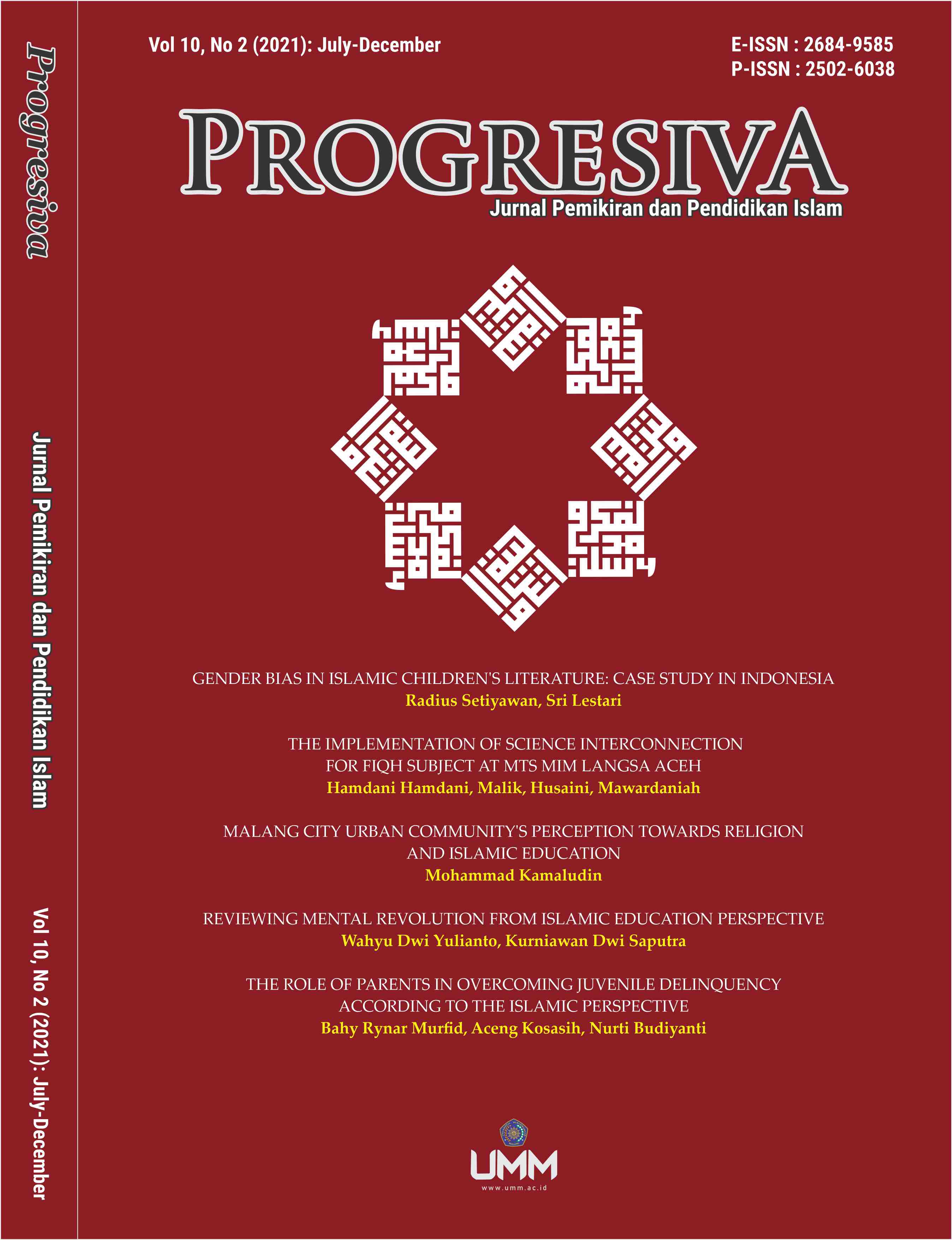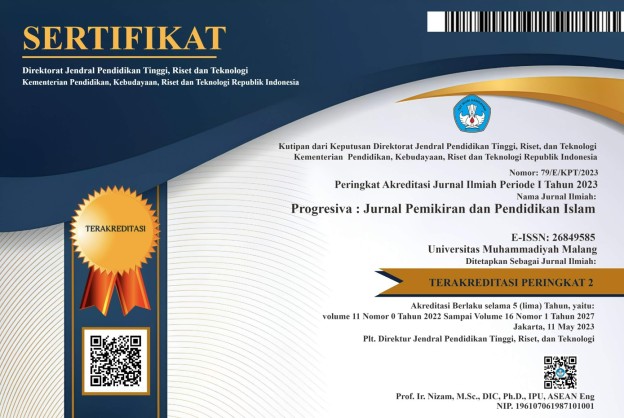Gender Bias in Islamic Children’s Literature: Case Study in Indonesia
DOI:
https://doi.org/10.22219/progresiva.v10i2.18712Keywords:
Islamic Genre for Children's Readings, Gender Equality, SexismAbstract
Children's books with Islamic content are popular in Indonesia. The motivation of parents to introduce this genre of books is to help them teach their children the faith and knowledge of Islam from an early age. The more complete the information about Islam available in the book, the more parents will consider buying the book. Meanwhile, consideration of books with content that introduces gender equity needs to be considered. This study analyzes the gender bias in stories of Islamic content. The books analyzed are several popular books published by various different publishers. The research method used was qualitative and the narrative and visual data were critically analyzed with a gender perspective. Feminist linguistics was used to more deeply reveal the signs that will be described based on the context that surrounds the female character. The depiction of women in the four books is generally represented by traditional gender patterns. The female figure is depicted as dependent on men, not involved in dominant narratives. The female characters are described as weak while the male characters are described as stronger without regard to the female character.
Downloads
References
Danesi, M. (2004). Messages, signs, and meanings: A basic textbook in semiotics and communication (3rd ed.). Canadian Scholars’ Press.
Friederike Mengel, Jan Sauermann, Ulf Zolitz. “Gender Bias in Teaching Evaluations.” Oxford Journals, 2017: 1-50.
Gottschall, J. (2008). The “Beauty Myth” is no myth. In Literature, Science, and a New Humanities (pp. 127–155). https://doi.org/doi.org/10.1057/9780230615595_7
Hamilton, M.C., Anderson, D., Broaddus, M. et al. (2006). Gender stereotyping and under-representation of female characters in 200 popular children’s picture books: A twenty-first century update. Sex Roles, 55(2006), 757–765. https://doi.org/https://doi.org/10.1007/s11199-006-9128-6
Litosseliti, L. (2014). Gender and language theory and practice. Routledge. https://doi.org/https://doi.org/10.4324/9780203784792
Mar, Raymond A., Keith Oatley, and J. B. P. (2009). Exploring the link between reading fiction and empathy: Ruling out individual differences and examining outcomes. Communications, 34(4), 407–428. https://doi.org/https://doi.org/10.1515/COMM.2009.025
Pereira, Íris Susana Pires, and Â. C. (2014). Turning ideologies inside out: Developing young readers’ empathy for critical voices in narrative fiction. Changing English, 21(4), 359–370. https://doi.org/https://doi.org/10.1080/1358684X.2014.969003
R, M. B. (2016). Buku Anak Islam Suka Membaca Disoal, Penulis: Sudah Cetakan ke-167.
Religious Literacy Movement. AKSIS, 3(1), 140–153. https://doi.org/https://doi.org/10.21009/AKSIS.030114
Udasmoro, Wening 2012, Sastra Anak dan Pendidikan Karakter, Yogjakarta: Prodi sastra Perancis FIB UGM.
Rokib, M. (2016). Reading Popular Islamic Literature: Continuity and Change In Indonesian Literature. Heritage of Nusantara: International Journal of Religious Literature and Heritage, 4(2), 183–194. http://jurnallektur.kemenag.go.id/index.php/heritage/article/view/83
Soelistyarini, T. D. (2013). Representasi gender dalam cerita-cerita karya penulis anak Indonesia seri KKPK. Mozaik, 14(2), 182–197.
Spence, J. T., & Buckner, C. (1995). Masculinity and femininity: Defining the undefinable. Gender, power, and communication in human relationships, 105-138.
Sullivan, j. (2018). Backlash Against Gender Stereotype-Violating Preschol Children. PLOS ONE, 1-24.
Wati, Rianna dan Susanto, Dwi. (2019). Islamic Children Literature in Digital Media as Religious Literacy Movement. AKSIS: Jurnal Pendidikan Bahasa dan Sastra Indonesia, 3(1), 140-153
Setiyawan, R., & Lestari, S. (2020). Patriarchal Discourse in Nusantara Classic Children Literature. Journal of Critical Reviews, 7(8), 2716–2725.
Purbani, W. (2019). Ideologi Anak Ideal dalam Lima Fiksi Anak Unggulan Indonesia Akhir Masa Orde Baru (Studi Kasus Tentang Fiksi-fiksi Pemenang Sayembara Penulisan Naskah Fiksi Anak Depdiknas dan Penerima Penghargaan Buku Bacaan Anak Nasional Tahun 1996-2001. Universitas Indonesia.
Downloads
Published
How to Cite
Issue
Section
License
Copyright (c) 2021 Radius Setiyawan, Sri Lestari

This work is licensed under a Creative Commons Attribution-ShareAlike 4.0 International License.


















